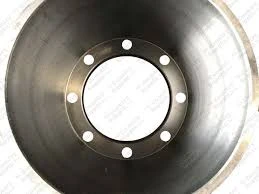
-
 Afrikaans
Afrikaans -
 Albanian
Albanian -
 Amharic
Amharic -
 Arabic
Arabic -
 Armenian
Armenian -
 Azerbaijani
Azerbaijani -
 Basque
Basque -
 Belarusian
Belarusian -
 Bengali
Bengali -
 Bosnian
Bosnian -
 Bulgarian
Bulgarian -
 Catalan
Catalan -
 Cebuano
Cebuano -
 Corsican
Corsican -
 Croatian
Croatian -
 Czech
Czech -
 Danish
Danish -
 Dutch
Dutch -
 English
English -
 Esperanto
Esperanto -
 Estonian
Estonian -
 Finnish
Finnish -
 French
French -
 Frisian
Frisian -
 Galician
Galician -
 Georgian
Georgian -
 German
German -
 Greek
Greek -
 Gujarati
Gujarati -
 Haitian Creole
Haitian Creole -
 hausa
hausa -
 hawaiian
hawaiian -
 Hebrew
Hebrew -
 Hindi
Hindi -
 Miao
Miao -
 Hungarian
Hungarian -
 Icelandic
Icelandic -
 igbo
igbo -
 Indonesian
Indonesian -
 irish
irish -
 Italian
Italian -
 Japanese
Japanese -
 Javanese
Javanese -
 Kannada
Kannada -
 kazakh
kazakh -
 Khmer
Khmer -
 Rwandese
Rwandese -
 Korean
Korean -
 Kurdish
Kurdish -
 Kyrgyz
Kyrgyz -
 Lao
Lao -
 Latin
Latin -
 Latvian
Latvian -
 Lithuanian
Lithuanian -
 Luxembourgish
Luxembourgish -
 Macedonian
Macedonian -
 Malgashi
Malgashi -
 Malay
Malay -
 Malayalam
Malayalam -
 Maltese
Maltese -
 Maori
Maori -
 Marathi
Marathi -
 Mongolian
Mongolian -
 Myanmar
Myanmar -
 Nepali
Nepali -
 Norwegian
Norwegian -
 Norwegian
Norwegian -
 Occitan
Occitan -
 Pashto
Pashto -
 Persian
Persian -
 Polish
Polish -
 Portuguese
Portuguese -
 Punjabi
Punjabi -
 Romanian
Romanian -
 Russian
Russian -
 Samoan
Samoan -
 Scottish Gaelic
Scottish Gaelic -
 Serbian
Serbian -
 Sesotho
Sesotho -
 Shona
Shona -
 Sindhi
Sindhi -
 Sinhala
Sinhala -
 Slovak
Slovak -
 Slovenian
Slovenian -
 Somali
Somali -
 Spanish
Spanish -
 Sundanese
Sundanese -
 Swahili
Swahili -
 Swedish
Swedish -
 Tagalog
Tagalog -
 Tajik
Tajik -
 Tamil
Tamil -
 Tatar
Tatar -
 Telugu
Telugu -
 Thai
Thai -
 Turkish
Turkish -
 Turkmen
Turkmen -
 Ukrainian
Ukrainian -
 Urdu
Urdu -
 Uighur
Uighur -
 Uzbek
Uzbek -
 Vietnamese
Vietnamese -
 Welsh
Welsh -
 Bantu
Bantu -
 Yiddish
Yiddish -
 Yoruba
Yoruba -
 Zulu
Zulu
disk brake drum brake
Disk Brakes vs. Drum Brakes A Comparative Analysis
Braking systems are a crucial component of vehicle safety and performance. Among the various types of brakes, disk brakes and drum brakes are the two most commonly used types. Each has its own unique characteristics, advantages, and disadvantages, making them suitable for different applications. Understanding the differences between disk brakes and drum brakes can help consumers make informed decisions about vehicle maintenance and purchase.
Basic Operation
Disk brakes operate by using a flat, circular disc (the rotor) that is attached to the wheel. When the driver applies the brakes, brake pads squeeze against the rotor, creating friction that slows down the wheel. This system is typically more efficient at dissipating heat compared to drum brakes.
On the other hand, drum brakes consist of a hollow drum that rotates with the wheel. Inside the drum are brake shoes that press outward against the drum when the brakes are applied. This design, while effective, often leads to higher heat build-up, which can decrease braking efficiency over time.
Heat Dissipation
One of the significant advantages of disk brakes is their ability to disperse heat more effectively. The open design of a disk allows for better airflow and cooling, which is essential during prolonged or aggressive braking situations, such as in racing or mountainous driving conditions. In contrast, drum brakes can retain heat, leading to brake fade — a reduction in braking power due to overheated components.
Performance and Stopping Power
disk brake drum brake

In terms of stopping power, disk brakes typically provide superior performance. They can handle greater braking loads, which translates into faster and more responsive stopping distances. This is particularly important in emergency situations where every fraction of a second counts. Drum brakes, while effective for lighter vehicles or for use in specific low-speed applications, may not offer the same performance levels as disk brakes, especially under heavy use.
Durability and Maintenance
Durability is another area where disk and drum brakes differ. Disk brakes tend to have longer service intervals and require less maintenance. The wear on rotor surfaces can be monitored easily, and brake pads can be replaced without removing the entire system. In contrast, drum brakes can require more frequent maintenance due to the complexity of their internal components and the need to adjust the brake shoes periodically to ensure proper function.
Weight and Cost
When it comes to vehicle design, weight and cost play significant roles. Disk brakes are generally heavier than drum brakes, which can affect the overall weight and fuel efficiency of the vehicle. Additionally, disk brake systems tend to be more expensive, both in terms of initial installation and long-term maintenance costs. This is why many economy cars still utilize drum brakes, particularly for their rear wheels.
Conclusion
In conclusion, the choice between disk brakes and drum brakes ultimately depends on the intended use of the vehicle. Disk brakes offer better heat dissipation, superior stopping power, and lower maintenance costs, making them ideal for high-performance vehicles and everyday cars alike. Drum brakes, while less efficient and requiring more maintenance, are often found in specific applications where their lower cost and adequate performance are advantageous.
Consumers looking to understand their braking systems should consider these factors when making decisions about vehicle purchase or maintenance. Whether opting for disk or drum brakes, both systems have evolved to ensure safety and performance, highlighting the importance of proper maintenance and timely replacements to keep vehicles operating at their best.
-
Rear Drum Brakes Maintenance TipsNewsAug.04,2025
-
Key Components Affecting Brake Drum FunctionNewsAug.04,2025
-
Important Inspection for Truck Drum BrakeNewsAug.04,2025
-
How to Prepare for Changing Rear Drum BrakesNewsAug.04,2025
-
Essential Tools for Cleaning Drum Brakes ProperlyNewsAug.04,2025
-
Brake Drum Function GuideNewsAug.04,2025
-
Safety Features of Red Brake DrumsNewsAug.01,2025
